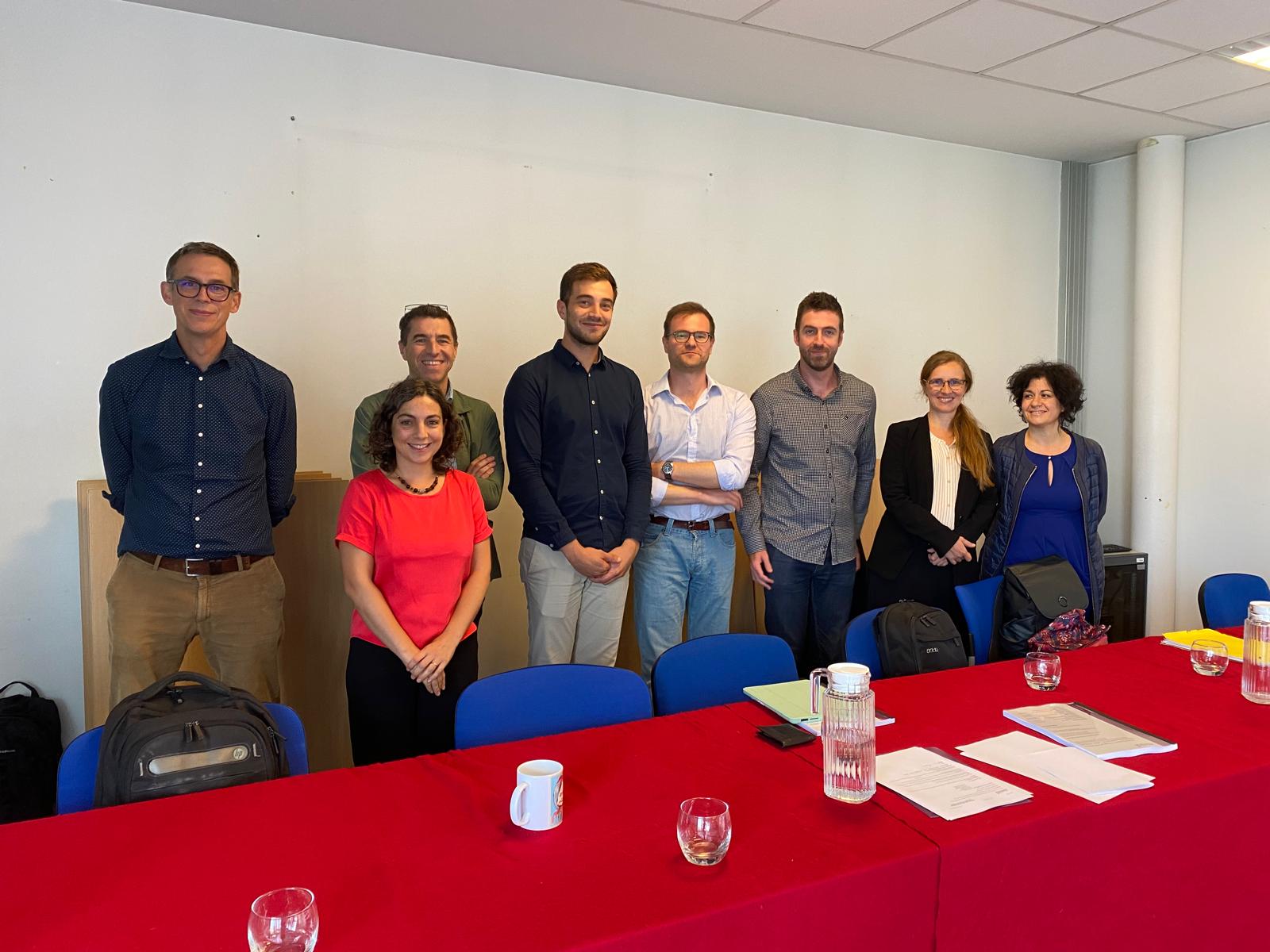Hugo Allouard, a Ph.D. student of the RITM supervised by José de Sousa and Grazia Cecere defended his Ph.D. thesis entitled “Three essays in digital economics: privacy, regulation and labor markets”, on September 2, 2024 (Room Gaudemet, Building D of the Faculty Jean Monnet).
Composition of the jury:
- Camille HÉMET, Professor, Université Paris 1-Panthéon-Sorbonne and Paris School of Economics (Referee)
- Ulrich LAITENBERGER, Associate Professor, Tilburg University (Referee)
- Antonio RUSSO, Professor, Institut Mines-Telecom Business School (President)
- Alexandre DECORNIÉRE, Professor Toulouse School of Economics (Examinator)
- Marianne VERDIER, Professor, Université Paris 2-Panthéon-Assas (Examinator)
- Philippe GAGNEPAIN, Professor, Université Paris 1 Panthéon Sorbonne and Paris School of Economics (Examinator)
This thesis studies the economic and behavioral implications of digitization. Chapter 1 investigates the privacy sensitivity of consumers in the mobile app market, accounting for the quality enhancement resulting from the use of user data. The findings indicate that not accounting for the consumer benefit of sharing personal information leads to an underestimation of privacy sensitivity. As a result, the sensitivity to data collection is higher than commonly reported in the literature. Furthermore, I show that privacy sensitivity increases over time, but with persistent heterogeneity across countries. Chapter 2 examines the implications of non-discrimination in data collection policies across markets, which is prevalent in the mobile app industry. By estimating a structural model of demand and supply and simulating counterfactual scenarios, I demonstrate that a regulation enforcing discrimination in data collection across countries would increase consumer surplus and privacy in Europe, but with opposite effects in the US. Chapter 3 investigates the impact of the boom in on-demand food delivery platforms on crime, leveraging the temporal and geographic disparities in their introduction in France. Our staggered difference-in-differences approach reveals that the arrival of a delivery platform in an employment area leads to a significant reduction in drug-related crimes. These results indicate that the gig economy fosters employment opportunities for low-skilled workers, youth, and minority groups, facilitating their engagement in lawful economic activities.

